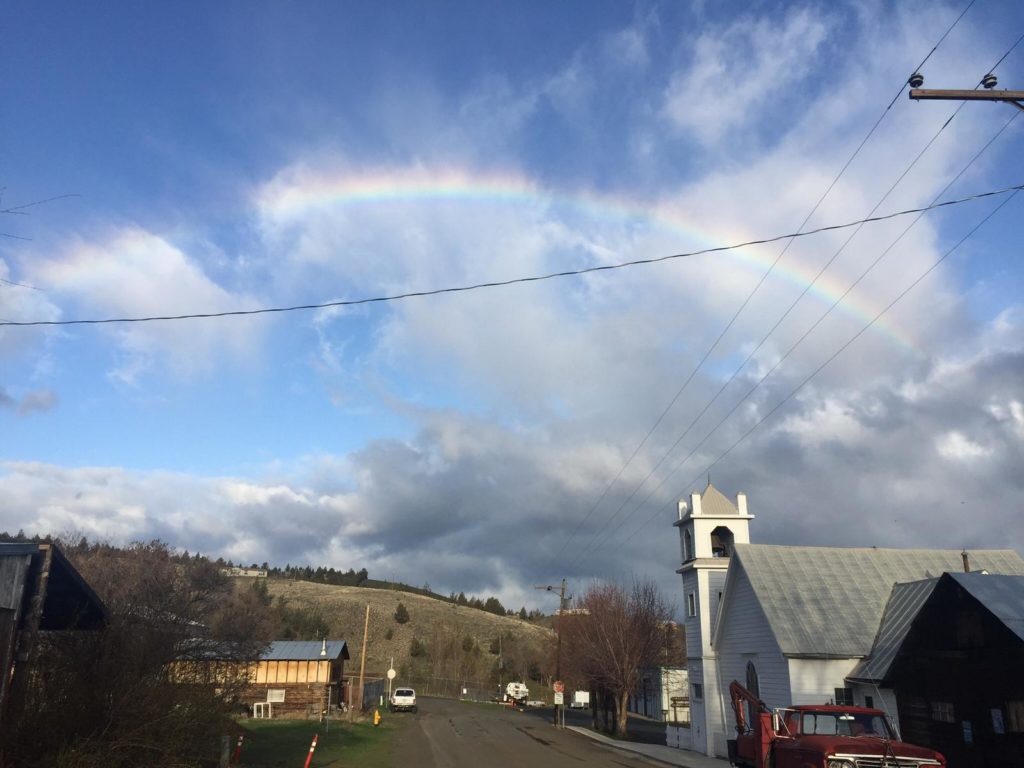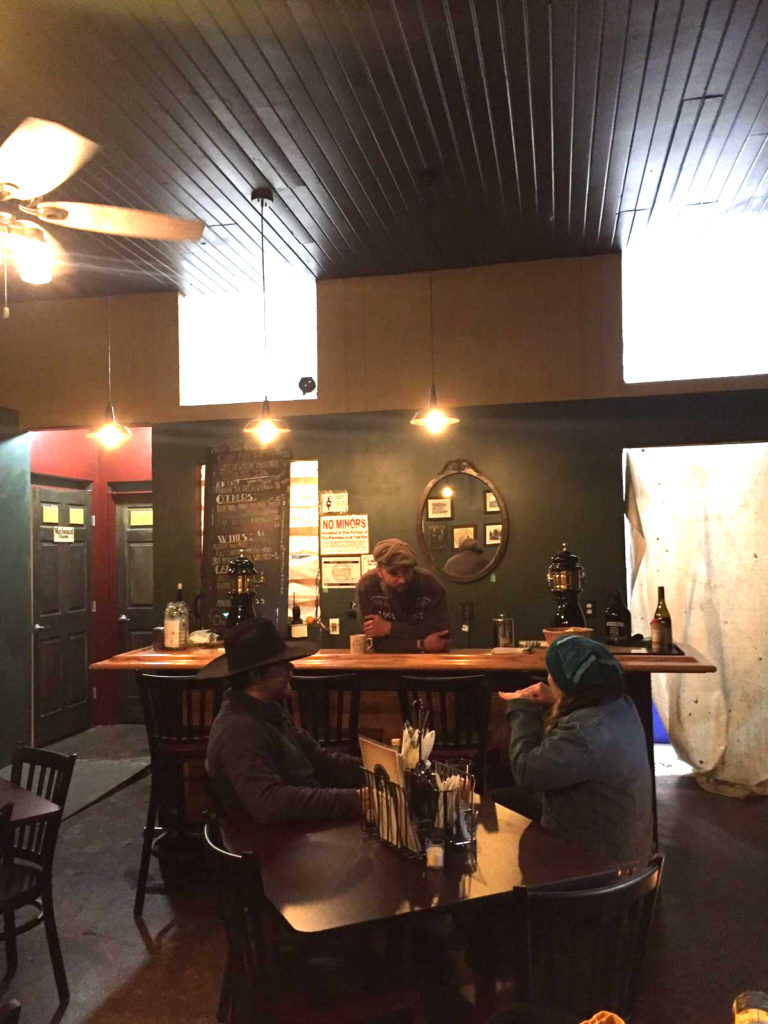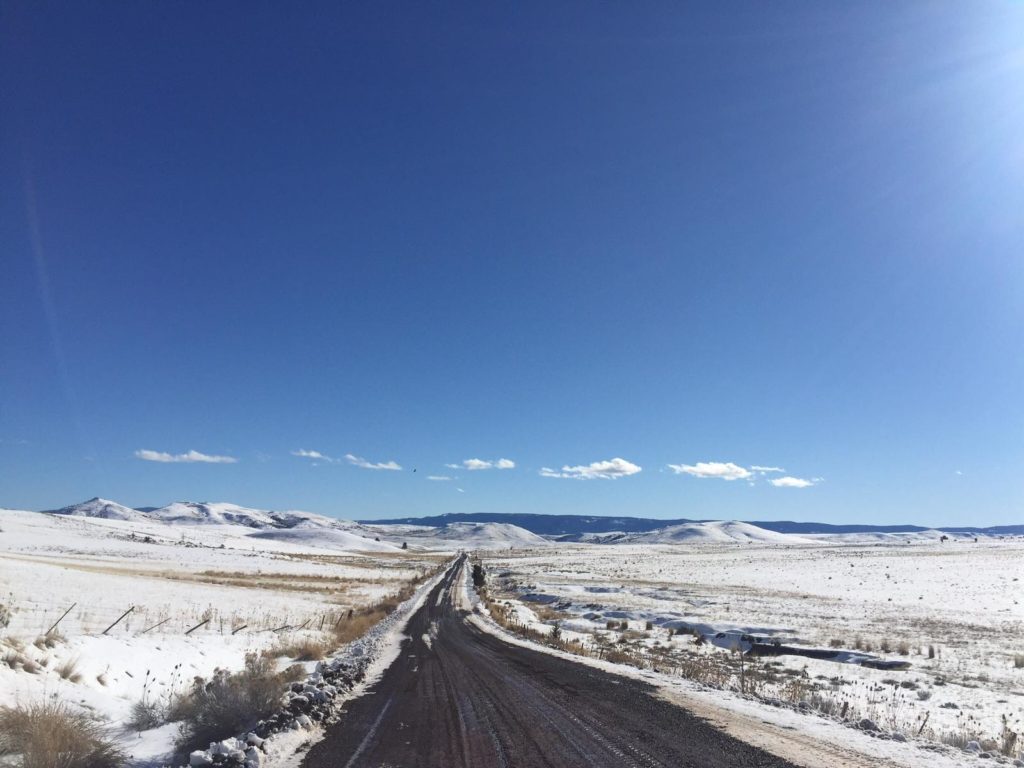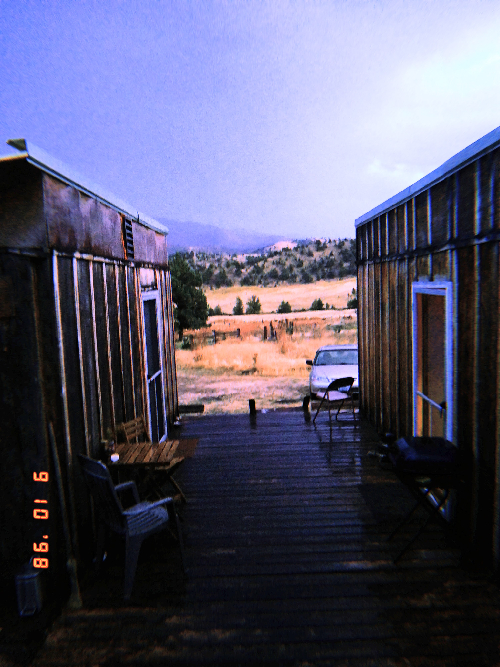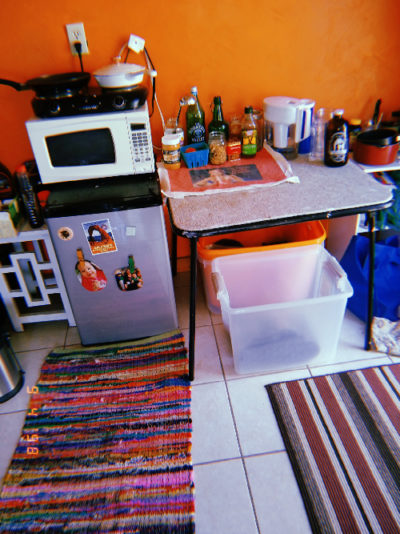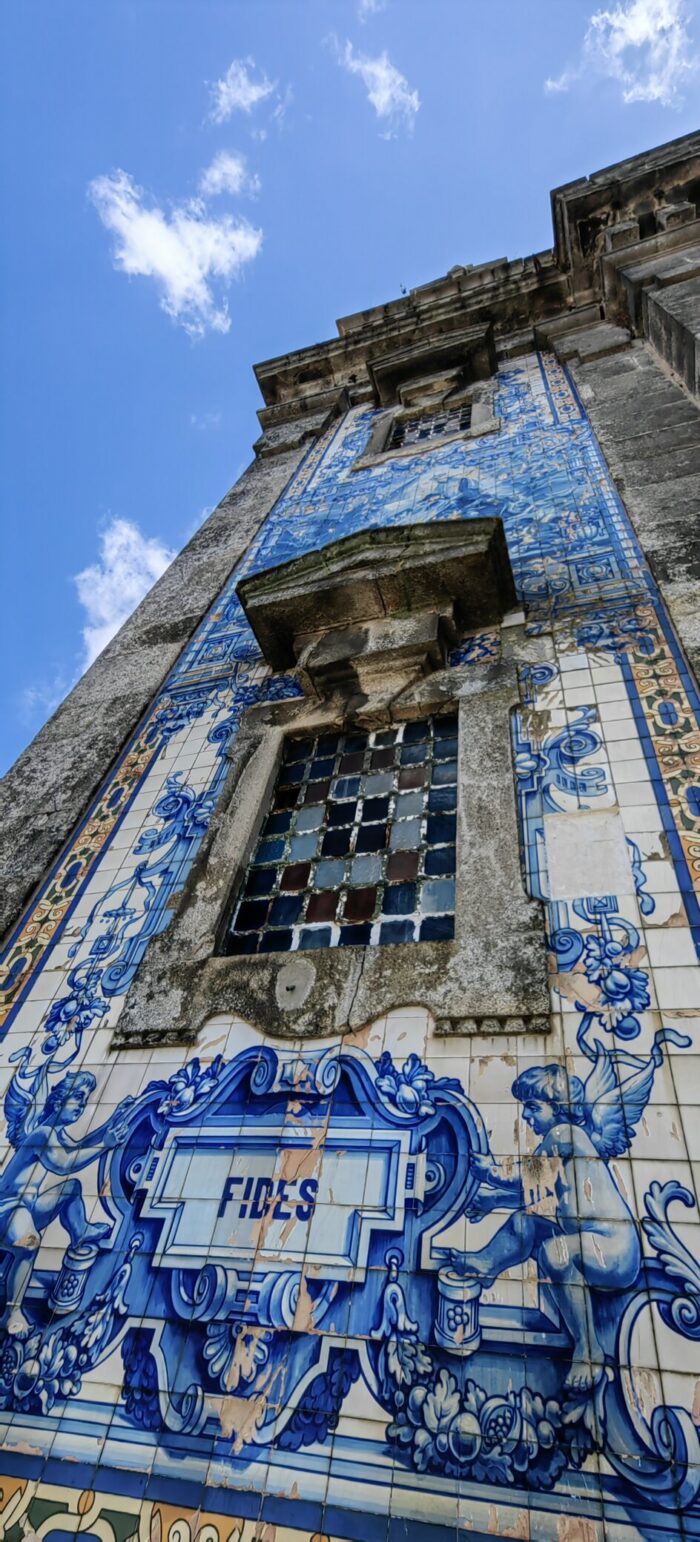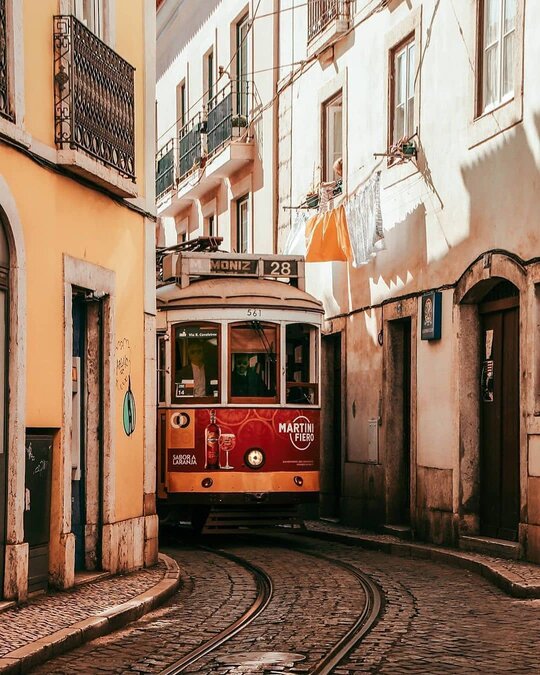Moving Out
If I have to pick a beginning, I’d say it was the day I moved to an ashram in East Texas, where I thought I might become a monk.
I’d already dispassionately handed off the items in my hometown studio apartment: My bike, my art, my dishes—almost everything went to Goodwill. My parents let me keep a small amount of furniture at their house, but otherwise, I’d downsized to the things I could fit in a backpack. I took a shuttle to SeaTac and boarded a plane for Dallas. When I left, I was 30, struggling with an ill-advised relationship and period of extreme emotional instability.
But I bet you know the ashram story. You’ve heard all about meditation, fasting, chanting, and the healing power of environments dedicated to the spiritual path. And the ashram was healing—to a point. Ultimately, I wasn’t ready for monk life. I was still wrapped up in the pesky human desire for new experiences, partnership, celebrations, family, and—as weak as this will sound—for a beer.
So, after two months, I put on my backpack again, its weight even lighter than when I’d moved in. I bid farewell to the sadvhis (the Jainist word for “nun”) and got into a car with a friend who lived in Austin, five hours away.
And another beginning was born.
Wandering
As winter 2018 transitioned into spring, I spent my days walking around Austin, paralyzed as I tried to decide what to do with my life. A strained balancing act arose: I paid close attention to my checking account, watching the number steadily decrease. To save money, I learned how to comfortably lengthen the time between meals and how to source cheap protein from H.E.B. (peanut butter and trail mix, of course).
A few weeks later, a friend’s band gave me a lift to Albuquerque (they were in Austin for SXSW); then I rode the Amtrak to Santa Fe. A travel nurse from the Santa Fe International Hostel drove me to Flagstaff after a stop off in Winslow (she was an Eagles fan). I took an overnight train from Flagstaff to LA and a sketchy Craigslist ride from L.A. to Portland, all while constantly and fruitlessly asking myself, where do I want to live? Why am I doing this?
All the places I stopped were decent: They had jobs, young professionals, and cool downtown vibes.
Still, choosing The Place proved difficult. I didn’t know what I was looking for—just a feeling, I suppose, a yes from the core of my being, a sense of certainty I hadn’t known in years.
In Bend, Oregon, I stayed at a hostel where I met a young man in bicycle shorts. Naturally, we exchanged “where are you from?” and “what are you doing?” stories. He was riding his bike across the country on what is known as the Trans-America Trail.
The cyclist told me about a town a few hours away called Mitchell, population 120. Not 120,000. One-hundred twenty, flat. He said that a couple had converted an old church into a hostel out there, and that it catered specifically to racers on the Trans-Am.

Mitchell is the natural travel post for the nearby Painted Hills, world-class geological formation marked by red, ochre, and green stripes.
“They took out the pews and put bunk beds in,” he explained, “A pastor and his wife run the place—super nice couple.”
Something about this idea hooked me: A community church repurposed into a hostel? In the middle of nowhere, no less?
It sounded magical, so I booked a bus for the next morning.
The Hostel
On my 31st birthday, I took a two-hour bus ride into the Wild West to see what the hostel (named Spoke’n) was all about. My bank account was in the low-triple digits; a job would soon be imperative. Oddly, the bus driver pulled over right outside the hostel at dusk, indeed an old church along the desolate highway.
Inside, it smelled of lavender (I learned later that this was because the wife of the couple, Jalet, had spilled a bottle of the essential oil). The first thing I saw was the stage and pulpit, decorated with huge, comfortable recliners, a vintage map of the United States, and an array of outdoorsy books. A piano sat on either side of the room and classy, blue pine bunk beds lined the wood floors. Each bed had a unique, handmade quilt tucked over the top, plus a power strip for charging devices. A windowed room in the back said “Barber Shop” in hand-painted letters. (The husband, Pat, offered haircuts to both hostel guests and locals.)
Regardless of my skepticism toward religion, I sensed the density in this old spiritual building. Within it, I could feel the joy of every baptism, the grief of every congregation member passed, the power of every hymn once sung. The church basement was a hub for community members to gather, a place where kids stopped by for ice cream and business owners planned events. A rich emotional tone was still there; only now the space had been transformed into the loveliest, most hospitable oasis for travelers I’d ever seen.
After introducing myself to Pat and Jalet, they mentioned they were looking for summer help. It was early June, just as the tourism season was beginning. We had a brief conversation and it was decided: I’d be their summer helper.
“And there’s a brewery down the street,” they explained. “They’re looking for help this summer, too. If you take a walk, you’ll see it in the Mitchell business loop.”
The Town
I use the term “Business Loop” loosely here.
A five-minute walk from the hostel, I saw a long-abandoned grocery store alongside a half dozen other decrepit buildings made of wood. The town had one functioning mercantile, still with its original white serif “Groceries & Needful Things” banner painted across the top. A few doors down, I passed a gutted saloon once called “The Pink Spur.”
This was the section of Mitchell called “Tiger Town,” aptly named for the fact that people used to drink and brawl there. Back in its heyday, there was also a large, multi-bedroom home beside the taverns that had been a brothel.
I stepped into the brewery (Tiger Town Brewing Co.) and asked after the proprietor, Eric, who was manning the bar in a dapper vest and tie. As I recall it, I then inquired about whether they needed help at the bar. But if you ask Eric, he’ll tell you that I walked in and announced that I was going to work here, no questions asked. And maybe that is how it went: Memory is slippery, and I admittedly want the best story to be the true one.
The bar was still in its early days, small yet promising, the shelves lined with select whiskeys, craft beer brewing in a tiny back room. For a space barely big enough to hold eight tables, they were doing a lot.
Once I filled out an application, I talked to the other brewery owner, Shawn. He was cooking in the kitchen out back (by “kitchen,” I mean an olive green food trailer barely big enough for two people). I tried to explain my interest in this tiny town to him. This presented a challenge, because I did not fully understand it myself: “I just think this looks like a cool place, and I’d like to live here.” He asked if I had experience; I reported truthfully that I had a lot.
By the time I returned to Spoke’n to sleep that night, the sun was setting. Of course, stars in the desert are not like stars in the city. They breathe and settle, creating an atmosphere of stillness that the fluorescent-lit skyscrapers and busy freeways ruin. Plus, the sunset itself was unreal: Vividly striped, like a syrup of neon light had been poured over the hills.
It was breathtaking, but it was more than that: My heart was finally struck by that yes I’d been searching for.
This was a yes beyond reason, because the reasons I had for moving to Mitchell were non-existent: I didn’t know anybody, and the job opportunities were confined to either ranching or the brewery—ditto for the dating opportunities.
And yet. The yes beyond reason was too clear to ignore.
Moving In
After a visit back home in Washington State, my ever-supportive mom and her friend took me back down to Mitchell. They left me in a mother-in-law apartment behind the hostel’s parsonage, and the following day, I walked to the hostel to open up. It felt seamless to start living and working in Mitchell; I still can’t say why.
To me, that summer is a mishmash of hostel guests from all around the world—often people on their own journeys, pausing from corporate life, searching for deeper meaning. Some shared their inner struggles with me, many of which I understood intimately. I think of busy, bright days pouring beers for those same travelers and nights spent reading books, journaling, and talking with new friends. I remember laughing with Tiger Town’s cook, Rusty, an artist also traversing the fringes of what some call “real life.” On slow days, he’d draw up new graphics for the beers, sketchbooks spread across a rustic wooden slab table.
Though Mitchell was pretty conservative (rumors swirled if I so much as had a private conversation with a man), I found that its spirit of self-sufficiency and independence suited me. The cowboys I met were short on words yet carried a softness about them, a way of being cultivated by solitude and unending work. The brewery’s owners were two former Marines (sorry; I take that back; apparently there’s no such thing as a former Marine) who were funny, loyal, and thoughtful.
The summer brought with it charming small-town events: Pie-baking contests, music festivals, frenzies around peach-picking season, movies on the lawn at Tiger Town, and coffin races (you read that right) on Halloween.
In short order, I came to love the place.
Staying
After the summer of 2018, I decided I needed to go to India. Here I’ll gladly accept the accusation that I was doing the basic Westerner thing: I learned about a teacher who became enlightened in a cave, and I needed to go to that teacher’s cave.
When I got back to Mitchell, it was the dead of winter, but surprisingly, I still wanted to be there. I moved out of the parsonage studio and into the former brothel beside the brewery.
Heavy snow walloped Wheeler County, as it does every year. I knew nothing about firewood (still no idea how much a “cord” is), but the brewery’s owners connected me with some juniper sellers. They unloaded a half-cord on my front porch one evening before the weather got too cold. With an ax left behind by the homeowner, I started to split wood in the austere winter mornings, warming my body with physical work as snow sparkled all around.
The house was spacious, so I moved my twin bed right in front of the fire to stay warm. Every night I dozed off, comforted by the fire, crossing my fingers that the embers would last until daylight.
When spring came around, I moved further out of town to a spartan cabin with a separate bathroom out-building. I turned that cabin into my own colorful little space, covered in tapestries, an antique mirror, and band posters.
The next summer was even busier: Tourists caught wind of Mitchell, with its microbrewery and glorious church-turned-hostel. Most mornings, I manned the front of house on my own, hustling from table to table, finally enjoying waiting tables—a job I’d mostly disliked until then. And, luckily, the business owners valued me and offered me a promotion, which I was happy to accept.
The rest of the summer was busy and hot. I tried to figure out how to helm the ship of a rapidly-growing restaurant while following my own internal compass. After work, I’d sit on the lawn with co-workers and drink a dry cider or an IPA, decompressing and laughing at whatever the day had brought.
It’s possible I’m romanticizing this time; our minds tend to do that. But when I look at pictures or talk to friends I still have from Mitchell, I realize: I’m not blinded by the foggy lenses of nostalgia here.
It really was that good.
Moving On
In the fall of 2019, India called to me again. Though my plans after the trip weren’t solid, I felt another change might be in order. I still loved Mitchell and everything it had given me: The self-reliance, the one-off connections, the chance to recreate myself, the ability to truly serve a community with a sparse workforce. And yet, I was craving a warmer climate and a new adventure. My spirit had been stirred by possibilities lurking in the unknown.
Leaping to new places with loose plans (or not plans at all) has always made me feel alive. Something about knowing the foreseeable future—about settling into long-term routines—seems to pull me into the low mental spaces I’ve worked hard to pull myself out of. Some may say I have a fear of commitment; that may be a fair assessment.
But when I look, the truth is that a part of me aches to live every good life possible: I want to meet every good person, taste every fruit in the world, learn other languages, sleep on floors, stay up all night on trains, dance everywhere. I want to discover more magical small towns and see what they’re like, too. And, at times, overwhelmed with the vast suffering in the world, I feel an unplaceable sense that there’s simply more I should be doing. In short: The idea of staying put anywhere for long is a thought I’m still at odds with.
So I packed up my cabin and flew to New Delhi. At airports, while sipping layover Americanos, I explored various Workaways and wrote to a farm on Maui.
India was also where I went vegan after years of being vegetarian, and I began to question whether I could comfortably sell chicken wings at the brewery. (To their credit, Tiger Town offers awesome plant-based meals and I loved recommending them to guests.) I also wanted to get my hands dirty—literally. I wanted to plant seeds in the ground and learn about growing food.
The Maui farm got back to me, and once I flew to the middle of the ocean and made friends with several other fringe-walking people, I knew the tide had changed.
It wasn’t an easy decision: Fond memories rise up whenever I hear “Mammas, Don’t Let Your Babies Grow Up to be Cowboys,” a regular song at Tiger Town, or pass a stream reminiscent of the creek that flowed behind the hostel. I see sprawling photos of ranch land posted by friends and think, I have to go back. And maybe I will. It’s impossible to know what reasonless yes will strike my heart.
Until then, Mitchell will always be a place I reflect on with gratitude and warmth. The town offered an irreplaceable season of life, ideal in its own way, wholly unrelated to ladder-climbing, status, or image.
I may have gone nowhere, but nowhere was exactly the place I needed to be.
Get more like this—Sign up for our daily inspirational newsletter for exclusive content!
__
Photo: Lish Troha


